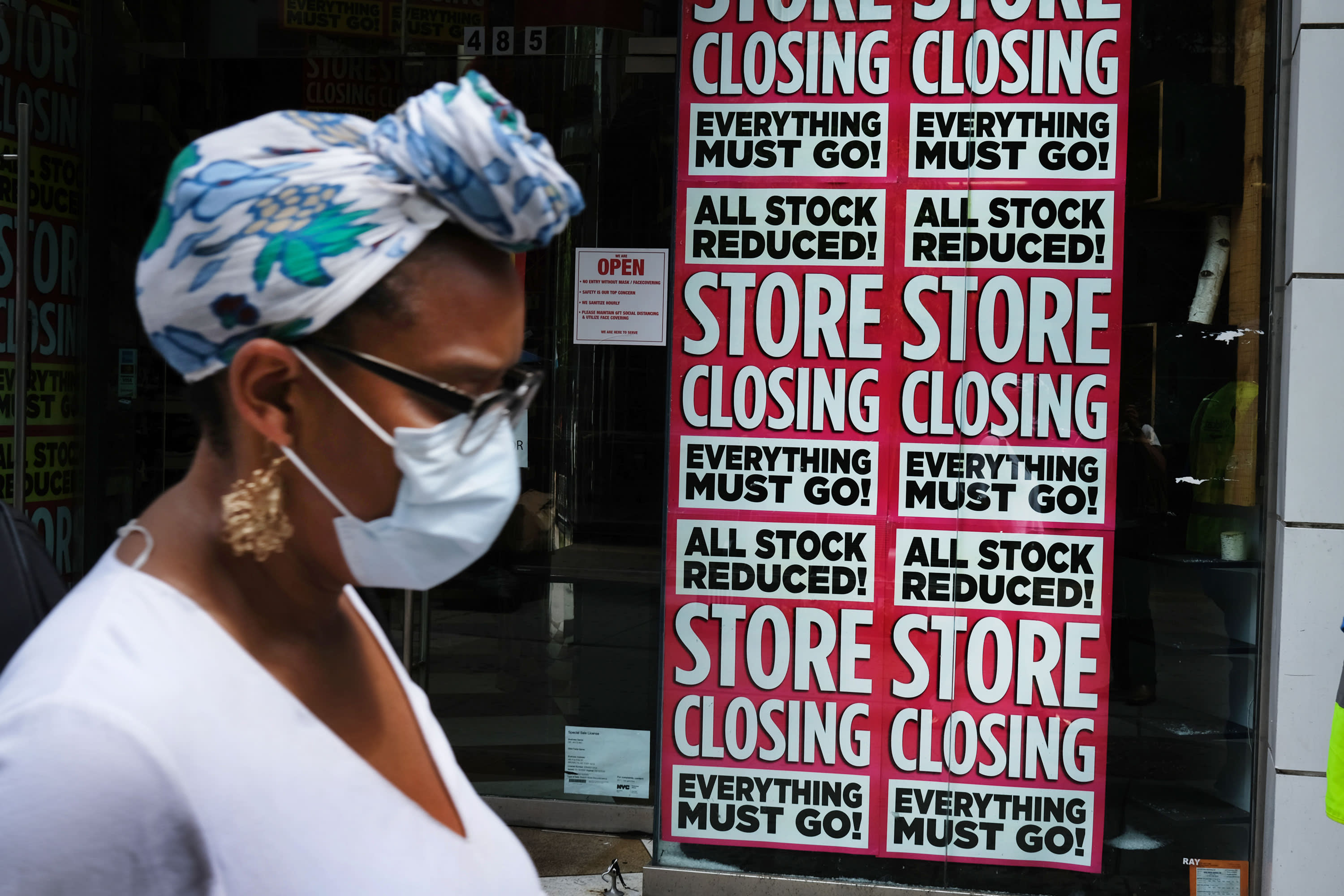Jobless claims edge lower but are still well above pre-pandemic levels

First-time claims for unemployment insurance continued a modest trend down last week, though the total remains well above what was considered normal prior to the coronavirus pandemic and was a touch higher than Wall Street estimates.
The Labor Department reported Thursday that 751,000 U.S. workers filed for benefits, compared with 758,000 the previous week. Economists surveyed by Dow Jones had been expecting 741,000. This was the third straight week that claims were below 800,000, and the four-week moving average fell to 787,000.
The numbers come a day before the government’s monthly nonfarm payrolls report, which is expected to show a gain of 530,000 in October. Thursday’s jobless claims report is not part of the survey week the Bureau of Labor Statistics uses to compute the monthly number.
Claims have been trending lower since the late-March peak of 6.9 million but remain elevated by historical standards. The pre-pandemic peak was 695,000 in October 1982.
“Bottom line, overall the labor market continues to repair itself but the pace at which it is doing so is slowing down,” said Peter Boockvar, chief investment officer at Bleakley Advisory Group.
Continuing claims fell for the sixth straight week, this time by 538,000 to nearly 7.3 million. However, part of the reason was the continued migration from those losing benefits into the Pandemic Emergency Unemployment Assistance program, which saw its rolls increase by 277,564 to 3.96 million. Continuing claims are delayed by a week.
At the same time, the total for those receiving benefits showed a sharp decline, falling by 1.15 million to 21.5 million. For the same period in 2019, 1.44 million people were getting benefits, reflecting just how deep the jobless problem remains in the pandemic era.
The insured unemployment rate, which is a simple computation of those receiving benefits against the total workforce, fell 0.3 percentage points to 5%. The headline unemployment rate, which includes multiple other factors, is expected to edge lower to 7.7% from the 7.9% level in September.
Illinois saw the biggest weekly increase in claims, climbing 23,200 to 53,138, according to unadjusted data. Kansas, Kentucky, Ohio and Pennsylvania reported gains of more than 3,000. Massachusetts reported the biggest decline at 9,055, while Florida, Georgia and Michigan also reported substantial decreases.
Markets reacted little to the claims news, with Wall Street on pace for another sharp rally Thursday.



